Wood flooring ideas – 11 gorgeous floor styles and how to choose
Looking for wood flooring ideas for a room in your home? Timeless and elegant, what’s not to love? We look at styles for your living room, kitchen and more.

If you're on the hunt for wood flooring ideas, we have some stunning looks to show you for your living room, kitchen, bedroom and beyond.
There’s no doubt about it; wooden flooring is an investment. Whether that’s the amount of money spent, the time and upheaval of having it fitted or restored, or even the value it can add to your home life and property’s value.
The latest ranges of wood flooring are usually treated with tough, long-lasting finishes and are pretty easy to install, they can go over practically any floor surface as long as it’s sound, dry and flat. Reclaimed wooden flooring is a little more tricky, so it’s best to get advice from an expert if that’s the route you’re going down.
Engineered or natural? That’s the big question. It largely depends on what you’re using the room for. While natural timber lasts for years, it can be pricey. And noisy – especially in upstairs rooms – making it not the best option for a bathroom flooring idea.
Engineered wood might be a more suitable option, particularly if you’re looking for ways to cut costs. It consists of a plywood base with several layers of criss-crossed hardwood boards for strength and stability with a layer of natural timber across the top so you retain that authentic look.
With so much choice, there’s both design and practical benefits to weigh up. We’ve shortlisted our favourite ideas to help you choose your perfect planks…
1. Shades of grey
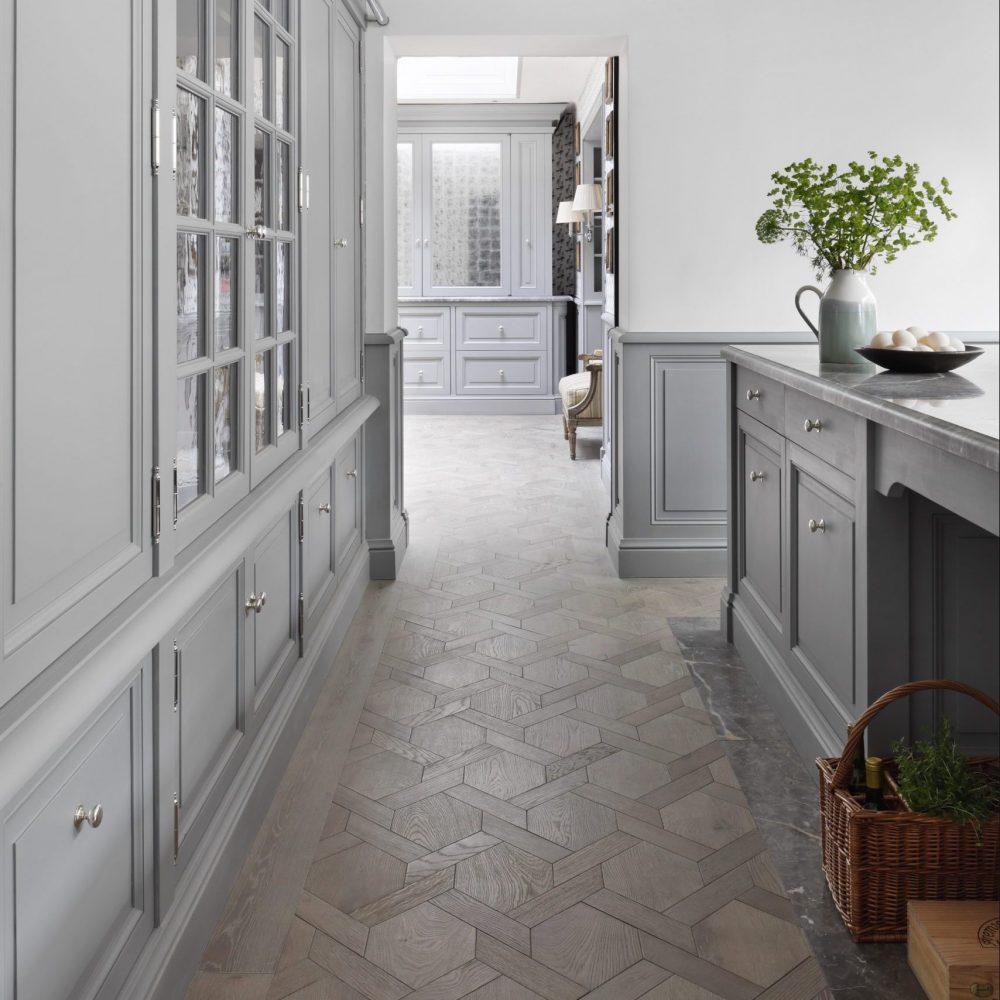
Cool grey finishes offer a modern twist on the more traditional yellow hues of natural oak or pine, perfect for achieving that sought-after Scandinavian feel. ‘Our mansion-weave design is non-directional and is therefore suitable for unusual spaces – you can pretty much lay it anywhere and then go back to planks when the room opens up,’ says Philip Seidl, sales director at Element 7.
Get the Ideal Home Newsletter
Sign up to our newsletter for style and decor inspiration, house makeovers, project advice and more.
Buy now: Mansion Weave Sachs Grey Oak, from £225 p sq m, Element 7
2. In with the old
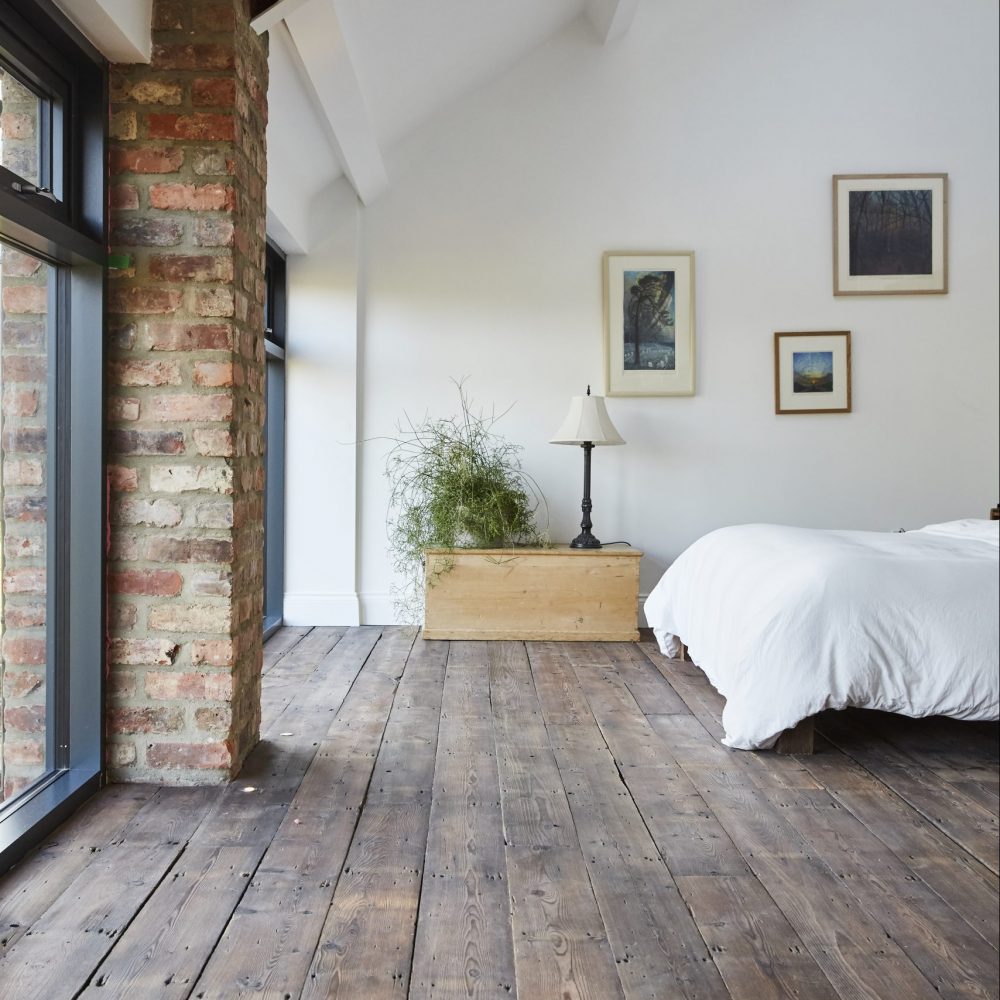
‘With a rise in awareness and demand for sustainability and eco-conscious materials, reclaimed wood is a great option that not only considers the environment but also introduces authentic charm to the home,’ says Alex Main, director at The Main Company.
‘We’re one of only a few companies in the UK that engineers reclaimed flooring that’s compatible with underfloor heating, which is highly desirable in older properties.’
Buy now: Solid reclaimed flooring, from £104.50 per sq m, The Main Company
3. Go blonde
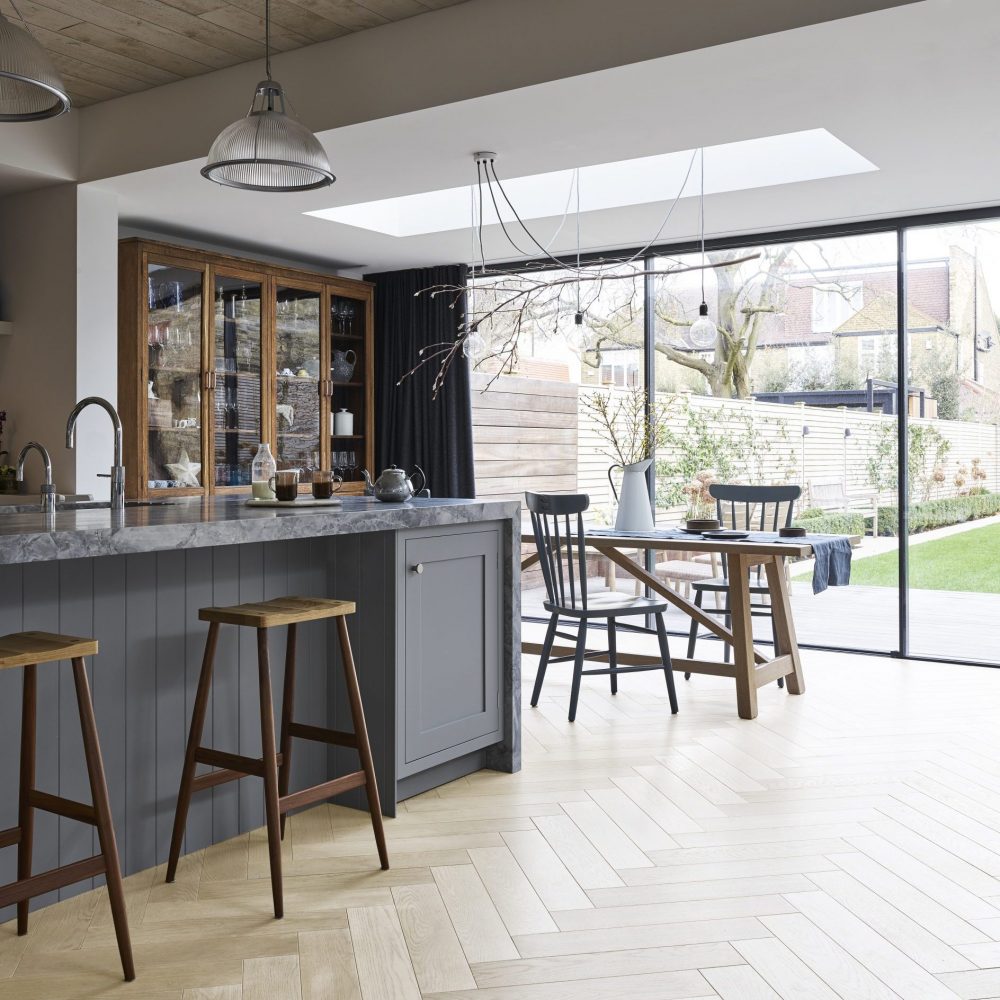
Choose blonde wood flooring to give your home a spacious, airy feel that makes a beautiful base for your chosen decorating scheme. Naturally light woods, such as ash or birch, work particularly well, but a light finish on traditional oak will achieve a similar effect.
Buy now: Levana Herringbone LV414, from £72.98sq m, Kersaint Cobb
4. Lay parquet
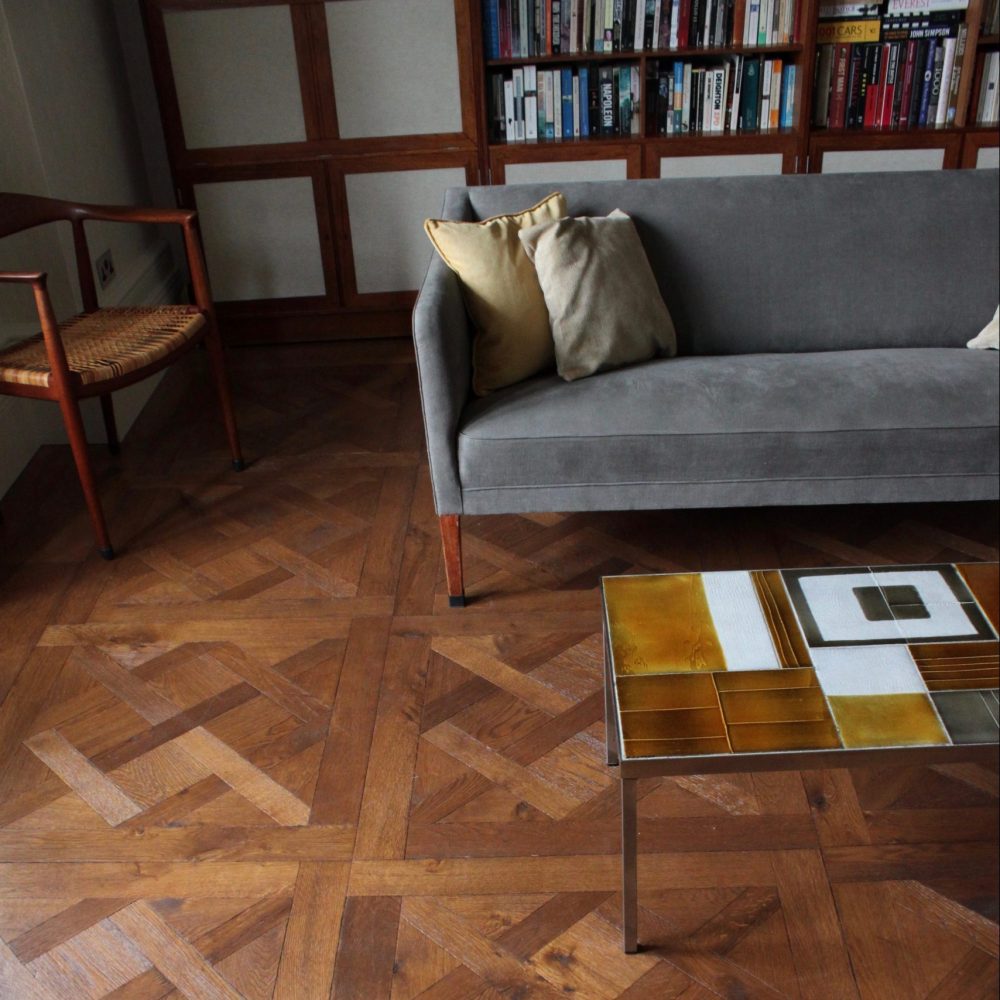
The traditional Parquet de Versailles design is currently enjoying a renaissance due to its elegant, yet contemporary, feel. ‘Our version has been smoked to enhance the rich oak colour tones and we supply it unsealed, so it can be finished to suit individual tastes,’ says Peter Keane, director of The Natural Wood Floor Company.
Buy now: Versaille panel flooring, £120sq m, The Natural Wood Floor Company
5. Pattern play
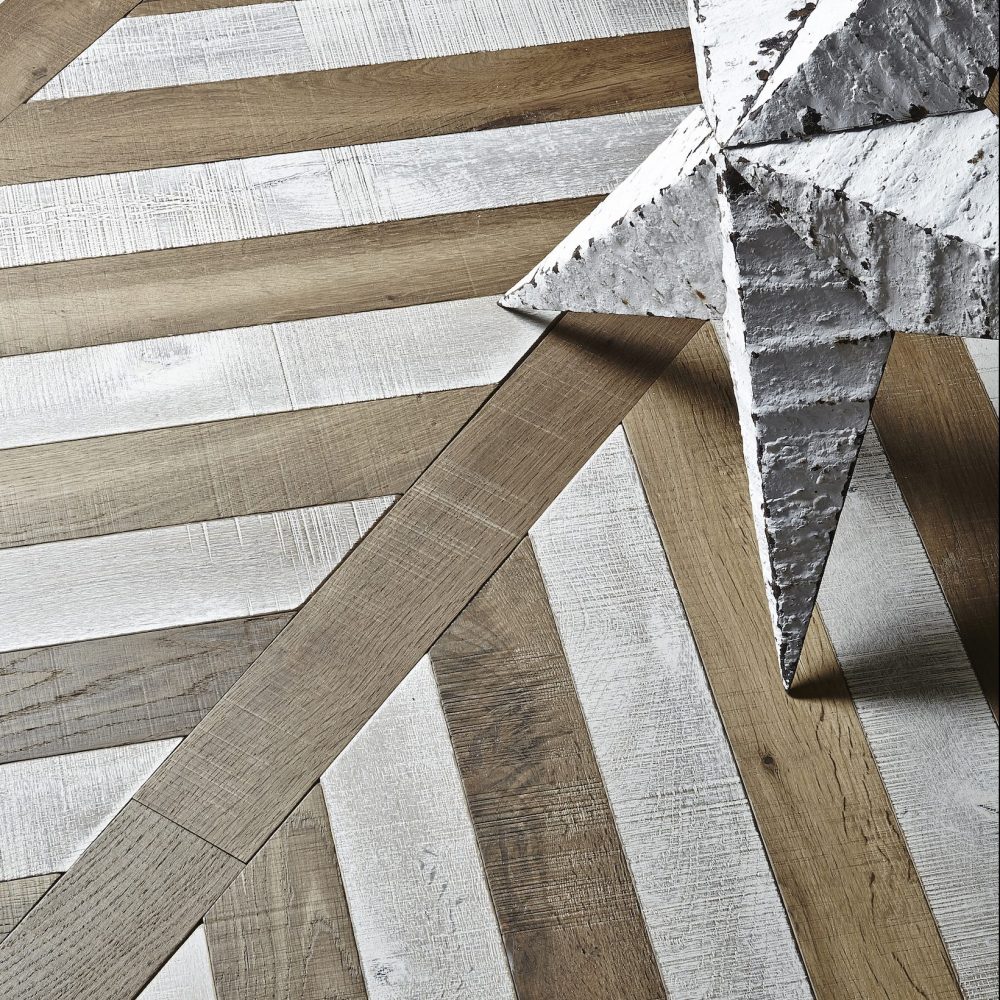
We’re becoming ever-more adventurous with our wooden flooring choices. ‘Combining planks in different shades and textures is a great way to create a unique design,’ says Kevin Hill, sales director at Ted Todd. ‘Try warmer tones with pale shades to add a modern edge that will age beautifully.’
Buy now: Hoxton chevron and Brooklyn chevron, both £148.74sq m, Woodworks by Ted Todd
6. Pick ‘n’ mix
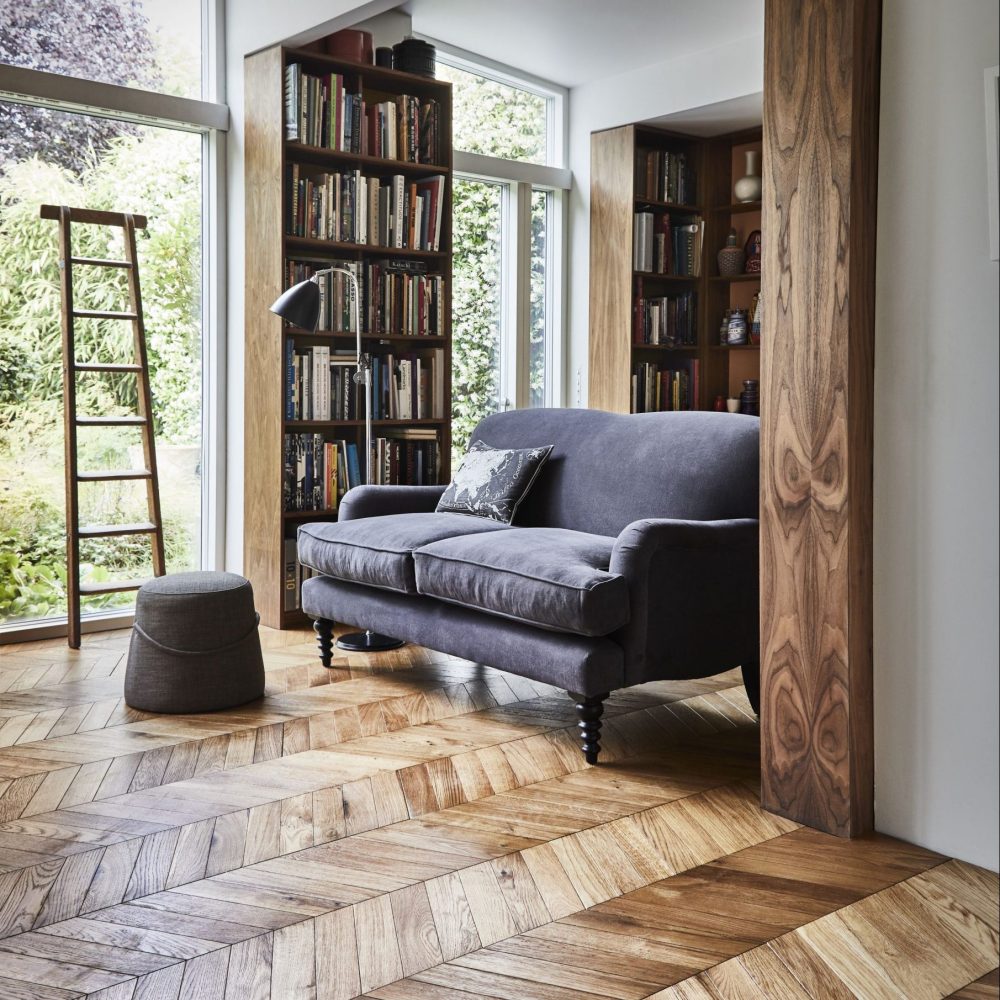
Give traditional chevron and herringbone patterns a twist by choosing two tones of oak grain. ‘Mixing wood tones offers the chance to be less uniform in your styling, adding a lived-in feel to the room,’ says David Snazel, hard flooring buyer at Carpetright. Left and right planks are easier to install than traditional parquet – ideal for getting the look without the cost.
Buy now: Kahrs Chevron Light Brown engineered wood, £119.99sq m, Carpetright
7. Broad appeal
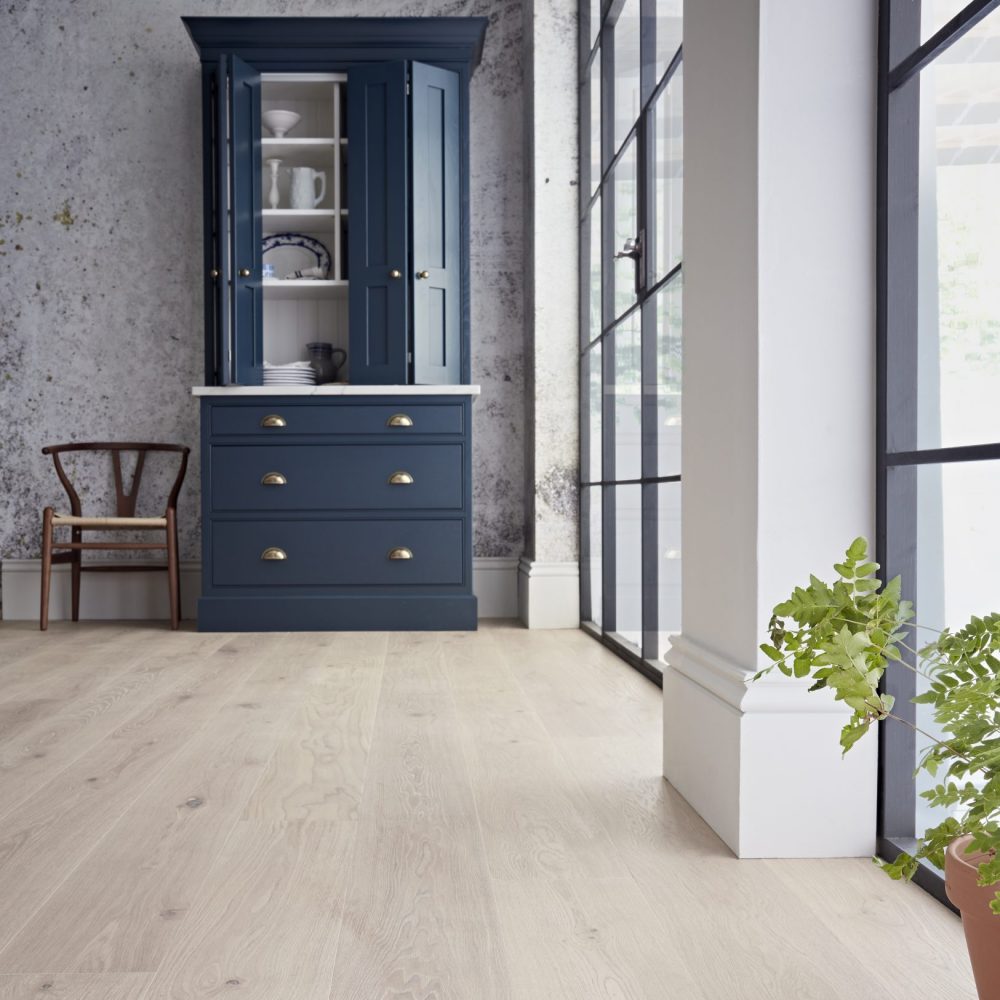
With open-plan living as popular as ever, wide timber planks are in high demand. ‘As well as creating the illusion of depth and space, they display the beauty of the grain and knots to greater effect,’ says Josh Burbidge, flooring director at Atkinson & Kirby. Their durability also makes them ideal for heavy furnishings.
Buy now: Arcadia oak floor, £70sq m, Atkinson & Kirby
8. Oak flooring
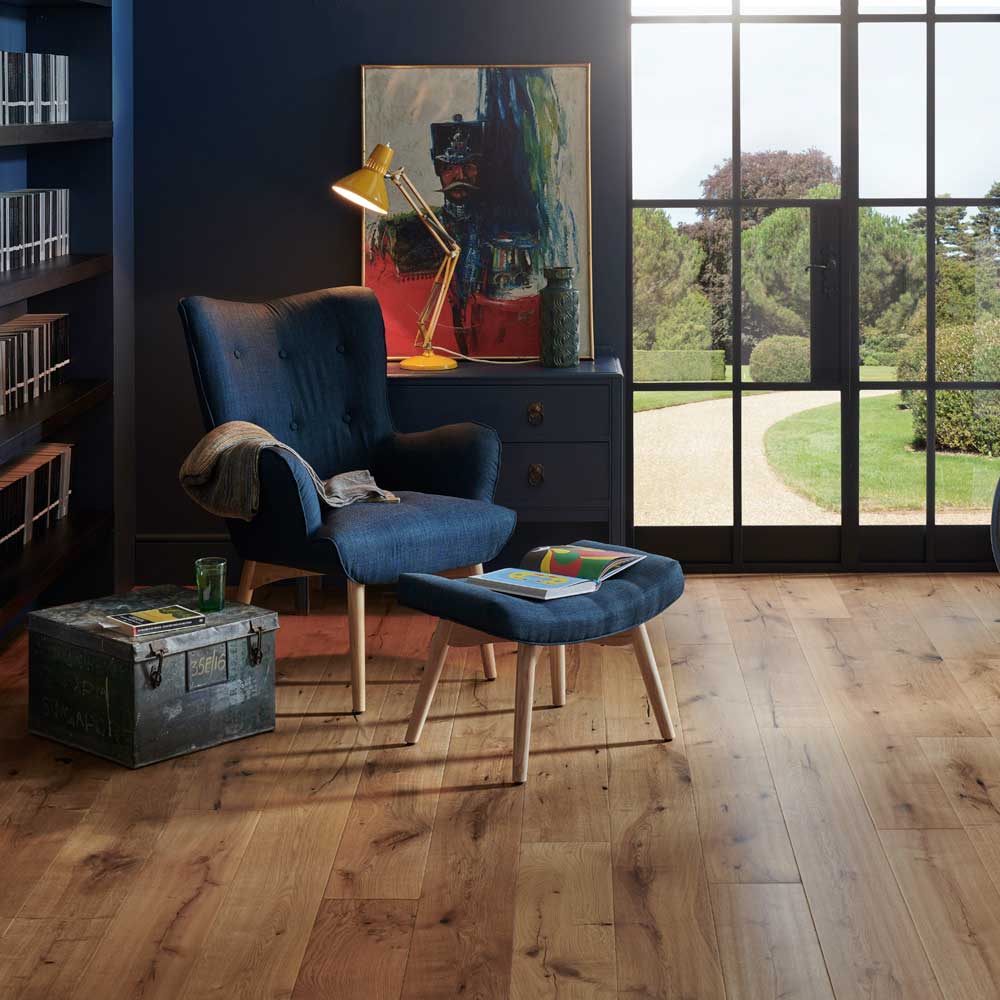
Why not opt for a classic look with oak planks? Woodpecker Flooring's Berkeley has smoked, dark, period accents and intricate wood knots that will add warmth to any room in your home. With an oil finish which enhances every grain, the distressed flooring with look slick when paired with velvets and deep blue colour schemes, like in this living room flooring idea.
9. Black wood flooring
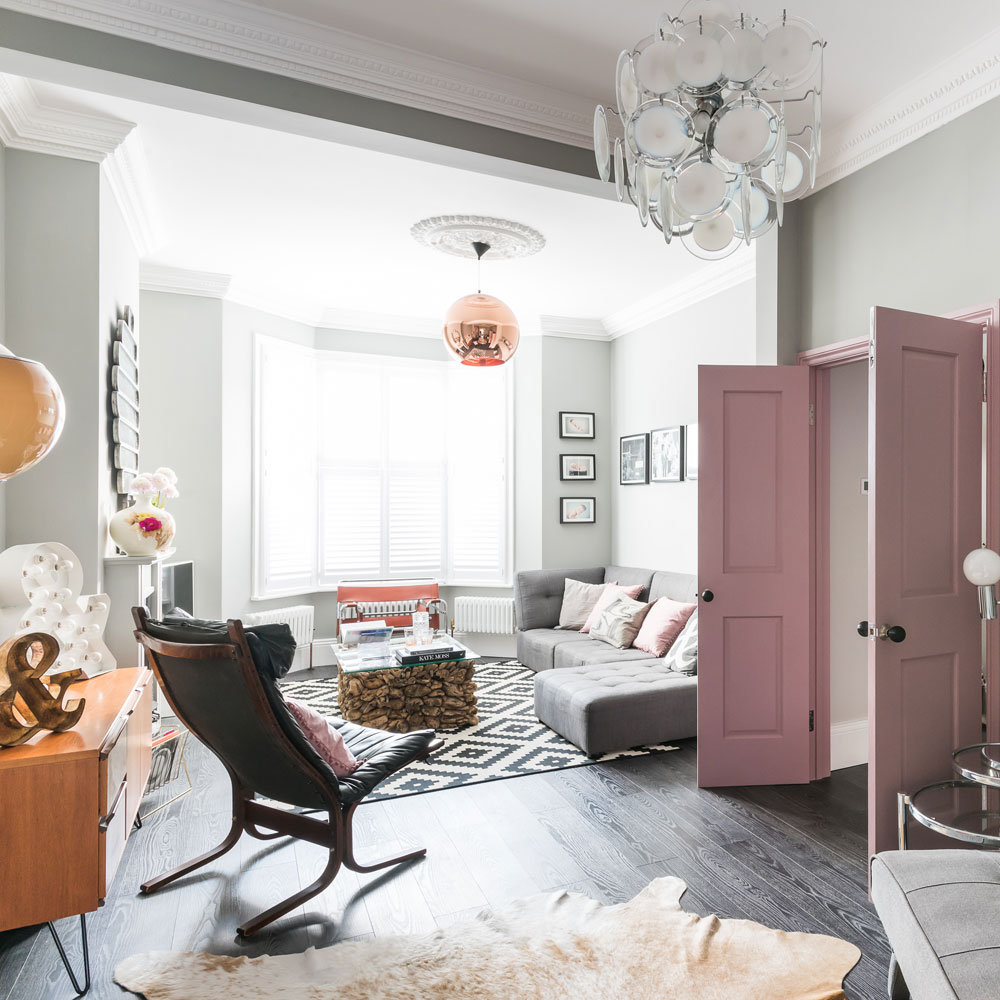
If you have a living room colour scheme with plenty of monochrome, a black engineered wood floor will look just the ticket to tie in with the look. Don't be afraid to pick a black floor – it'll stand out as a bold design choice but will also work as a great neutral for lots of colour.
10. Reclaimed parquet
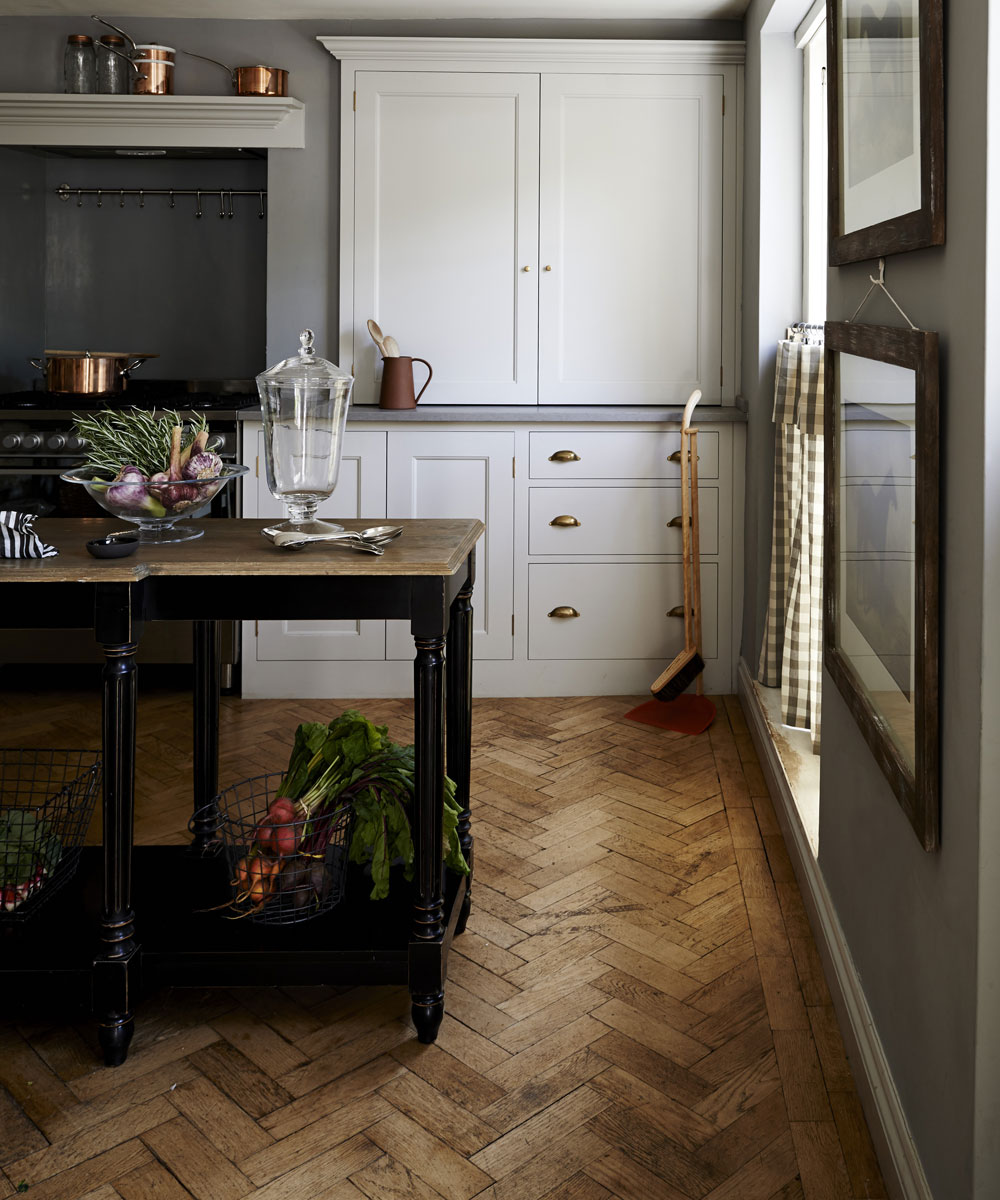
[]
Salvaged from public buildings and commercial premises, opting for reclaimed timbers can be a costly affair. But one we think will pay off when you see the finished result. Look for tumbled oak parquet, if you have a period property, to pair with original features like in this open plan Parisian kitchen. Check out Lassco for unique finds.
11. Limewashed wood floor
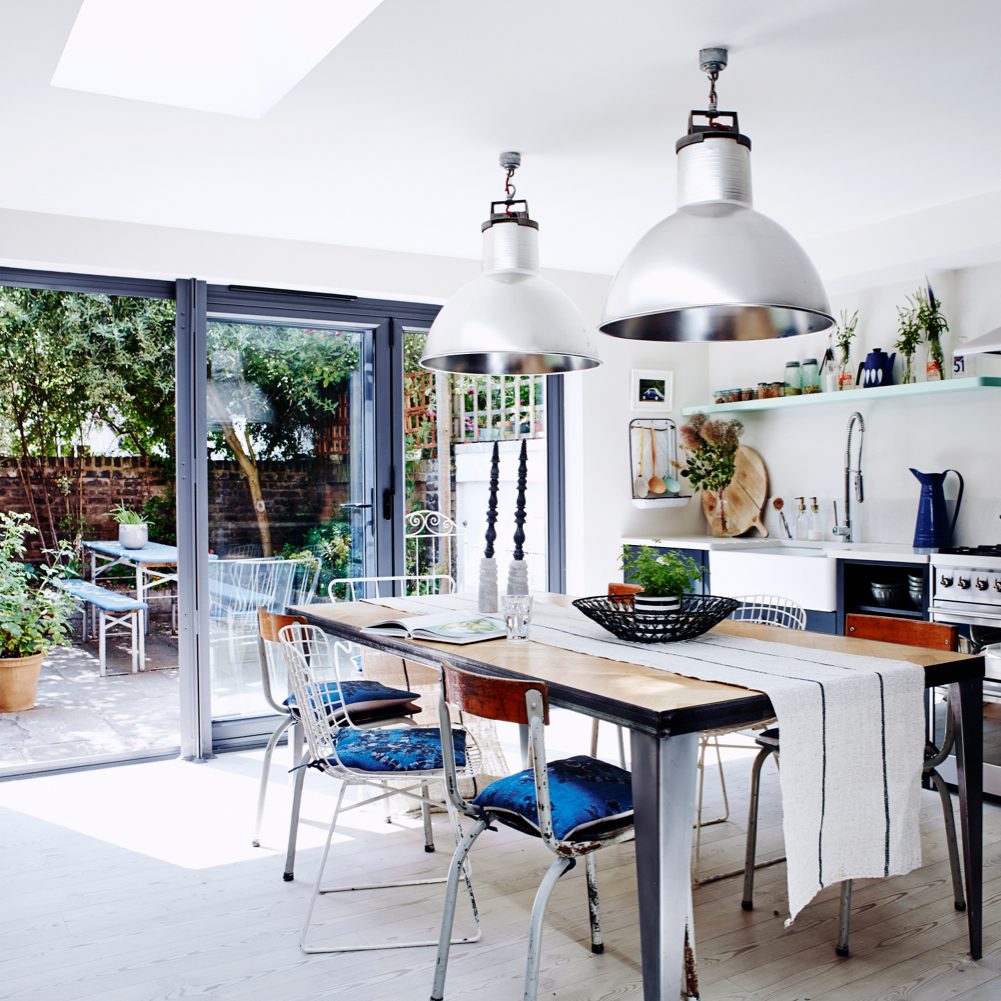
Have a space full of shabby chic decorating ideas with lots of reclaimed and salvaged items? A limewashed wood floor will add a weathered and bleached look, oozing vintage appeal.
A limewashed or whitewashed floor will also look shipshape and Bristol fashioned in a coastal style living room and will help a more compact space feel bigger, making it a useful small dining room idea too.
How to choose wood flooring
Timber flooring can strike just the right note in any style of home. It looks natural, warm and rustic in a country cottage and, in a contemporary setting, it can add texture and create an organic feel.
The latest ranges of wooden flooring have tough, long-lasting finishes and are straightforward to install. Whether you're keen to do it yourself, or opt for the installation service most suppliers offer, they're easy to lay down and can go over practically any floor surface as long as it's sound, dry and flat.
Reclaimed wooden flooring is a little more tricky, as it's not as uniform and you'll need to take advice from the supplier on the finish and amount.
Choose your wood flooring first - it's an integral part of the room and colour scheme and may affect how paint and wallpaper colours appear. Although some timber flooring - such as parquet, solid hardwood and reclaimed boards - can be darkened or lightened by sanding down and re-varnishing, it's not a job you are likely to want to do very often.
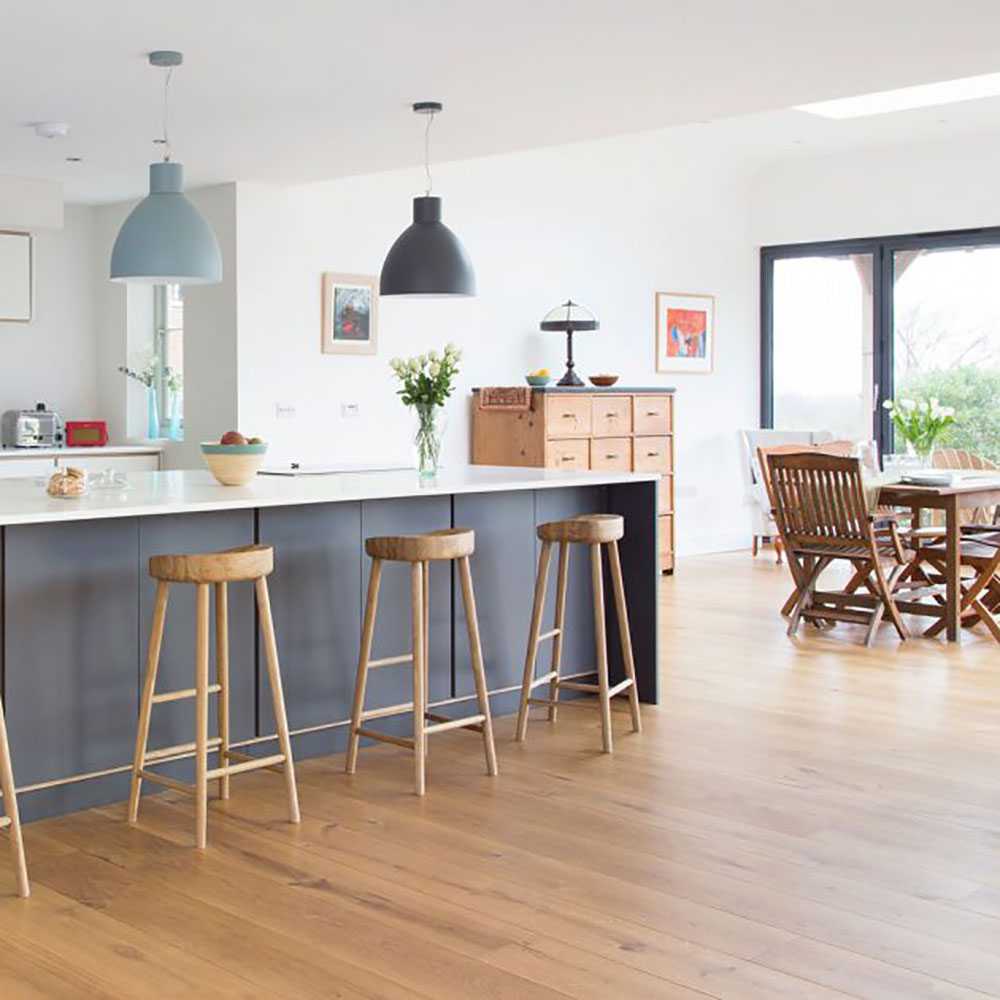
Types of timber flooring
Solid wood
Made from the named timbers, the wooden planks are solid all the way through. Some solid wood types are suitable for installation as the structural floor, without needing a sub-floor underneath.
Reclaimed timber
This can be bought as bundles of planks, boards or panels from reclamation and salvage yards, or as whole floors from timber-flooring specialists. Prior to installation, reclaimed timber flooring can look very uninspiring. However, once it's laid, it can look incredible, so you need a bit of imagination.
Multi-layered or engineered wood
This consists of a plywood or veneered base, built up with several layers of criss-crossed hard or softwood boards, and topped with a layer of the named timber. The construction of this flooring gives it strength and stability, so it's a good alternative to solid-wood flooring.
Laminate flooring
Made by producing an image of wood on a layer of plastic, which is laminated to a board backing. Top-quality laminate flooring have convincing textured finishes, and are hard wearing and tough. Inexpensive DIY store versions may look flat and lifeless, and the "wood" finish may flake or chip at the edges of the boards.
Vinyl
Vinyl flooring is widely available in timber patterns. Luxury sheet vinyl can be a good choice in the kitchen or bathroom, and is considerably cheaper than solid wood. Vinyl plank or block flooring feels harder underfoot, but, as each floor is individually designed, it always needs to be professionally laid.
Suitability of wood flooring in your home
- Timber flooring can be noisy, especially in upstairs rooms; use rugs to deaden the sound of footsteps in busy areas and always use the insulation suggested by the installers.
- Reclaimed timber flooring is usually well-worn and is tough enough for most living areas, although you should avoid bathrooms and kitchens.
- Solid or engineered wood flooring is suitable for living rooms, dining rooms, halls and bedrooms.
- Laminates are suitable for living areas and bedrooms, but avoid rooms with water, as seepage between the joins can cause planks to swell or discolour.
- Vinyl look-alikes are good choices for bathrooms and kitchens, conservatories and utility rooms, as well as for main living areas.
Wood flooring styles and grades
Timber flooring comes as planks (also known as boards), each of which can be made up of a number of strips. A plank with a three-strip design has three narrow strips running the length of the plank. The floor will have a random strip pattern when laid. Planks can vary in thickness, depending on the depth needed.
For example, the thickest planks, at about 22mm, can be laid over joists as structural floorboards, while thinner planks, at about 7mm to 15mm thick are laid as overlay floors on to an existing smooth, dry sub-floor.
The surface finish of timber flooring is also given a grading. Premium or select grades are smooth, uniform and knot-free. Moving down the scale, grades referred to as "natural" or "rustic" are less uniform and, in many cases, more realistic and appealing. Only order your flooring when you have seen a sample of the exact plank - strip, colour, grade and finish.
Wooden Floors and the Environment
Timber flooring is generally acknowledged to be ecologically sound, providing it is produced using timber from sustainable forests. Reputable stores will only deal with manufacturers who use wood from certified sources. In the UK, the Forest Stewardship Council (FSC) scheme is widely recognised and includes a certified chain that tracks timber through every stage, from forest to retailer. For further details, visit fsc-uk.org or call 01686 413916.
Wood flooring trends
There's currently a move away from narrow, pale woods, towards darker wood and reclaimed flooring. Oak is a perennial favourite, possibly due to its middle-range colour options, and the fact that it blends with virtually any colour scheme or style.
Extra-wide boards and planks (up to 76cm wide in some cases) are becoming favourites too – many with distressed finishes such as "smoked" effects. For laminate flooring, choose designs with V-grooves along the long and short edges of the boards, and with textured surfaces, which look far more realistic than completely smooth surfaces.
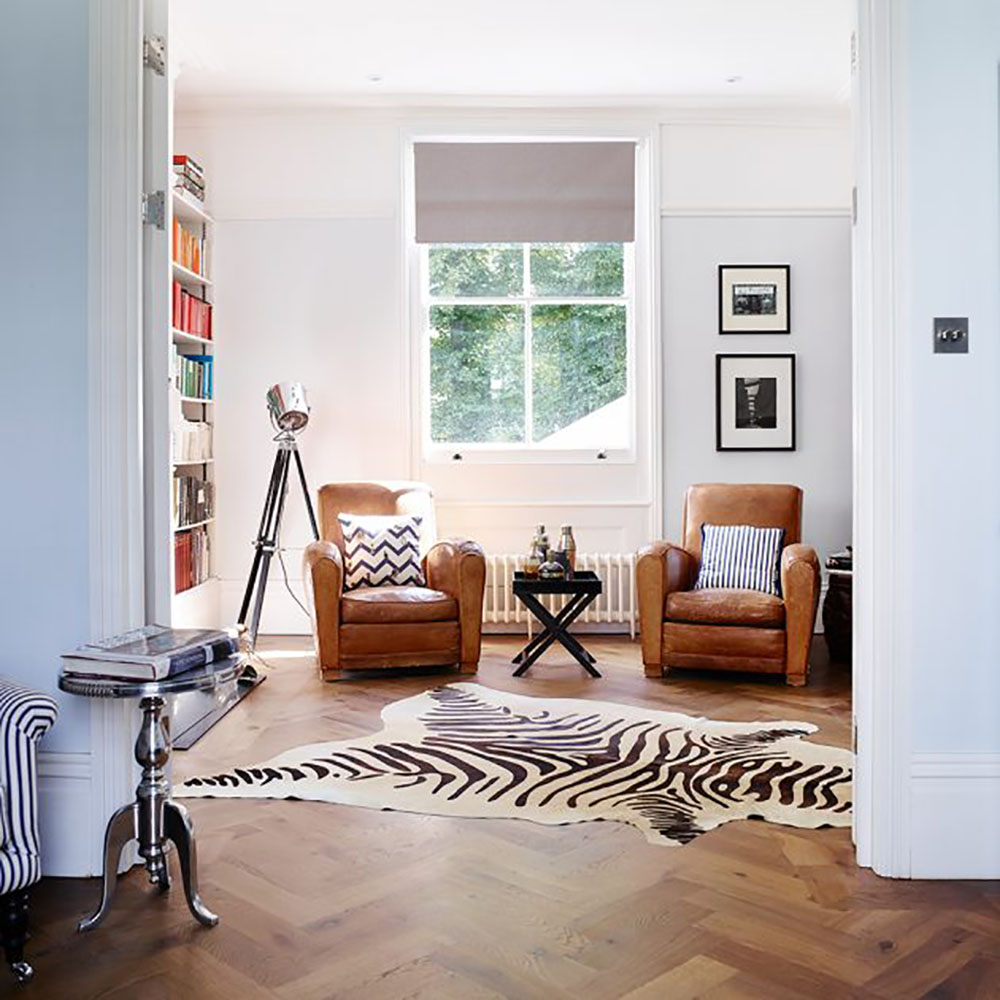
How to look after wood flooring
Solid-hardwood flooring is incredibly hard-wearing, and will last for many years. It can be sanded down and resurfaced every five to seven years. Engineered flooring will normally withstand one or two sandings, but no more than that.
Real wood flooring will age gracefully, and the signs of wear and tear are an acceptable feature - just as timber furniture ages and picks up the occasional dent or mark. So will timber flooring. Laminate flooring cannot be sanded when chipped, damaged or scratched, although the best quality ones are very hardwearing and scratch resistant in the first place.
Save timber floors from getting scratched by grit, dust and dirt by regularly sweeping with a soft brush or vacuuming them. Also mop the floor once a week or so with a well-wrung mop. A detergent can be added to the water, depending on whether the floor has a hard (varnished or lacquered) or soft (waxed or oiled) finish. Hard finishes provide a protective barrier for the wood, and offer a high level of protection, but are more difficult to repair if damaged.
A serious scratch or dent in a lacquered finish usually means the whole floor has to be sanded back and then relacquered or revarnished. Waxed or oiled finishes are softer, and protect the surface by sinking into the wood itself. They're most successful if you want to nurture an aged, worn look for your wooden floor. If waxed or oiled woods get damaged, the whole floor will not need to be redone, as it is possible to sand back and re-wax or re-oil an isolated area.
Vinyl wood-look flooring is easy to clean; regular sweeping and mopping is all it needs, and scuff marks can be removed by applying a little white spirit using a soft cloth.

Jenny is Senior Digital Editor and joined the team in 2021, working across Ideal Home, Real Homes, Homes & Gardens, Livingetc and Gardeningetc. Since getting on the property ladder, her passion for interior design and gardening has taken on a new lease of life. She loves collecting and salvaging unique items (much to her other half's despair) but sniffing out stylish home bargains is her one true love.
-
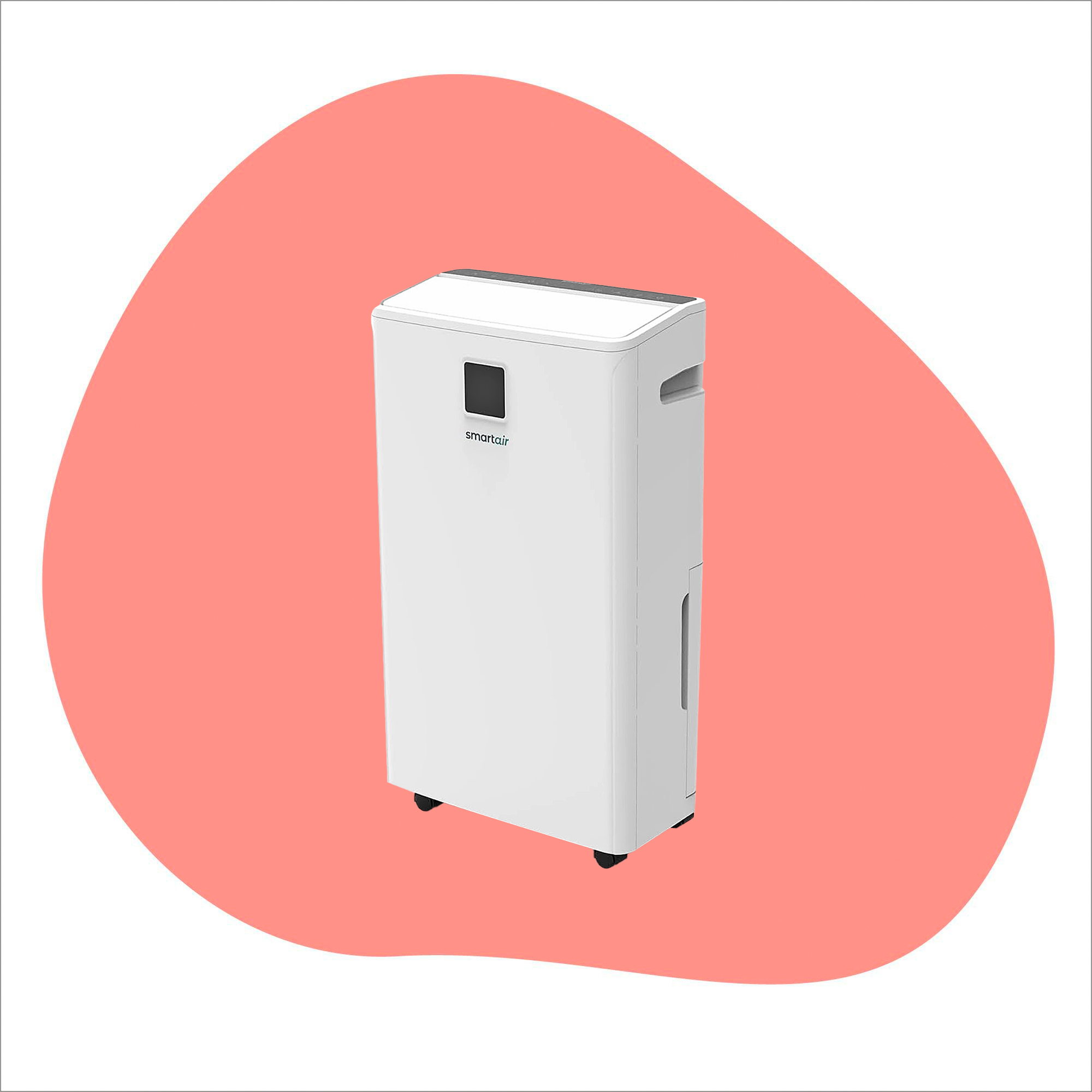 I tried out this neat little dehumidifier for a month – it dried my laundry in half the time
I tried out this neat little dehumidifier for a month – it dried my laundry in half the timeThe 20L SmartAir Dry Zone dehumidifier tackled my laundry drying woes head on
By Jenny McFarlane
-
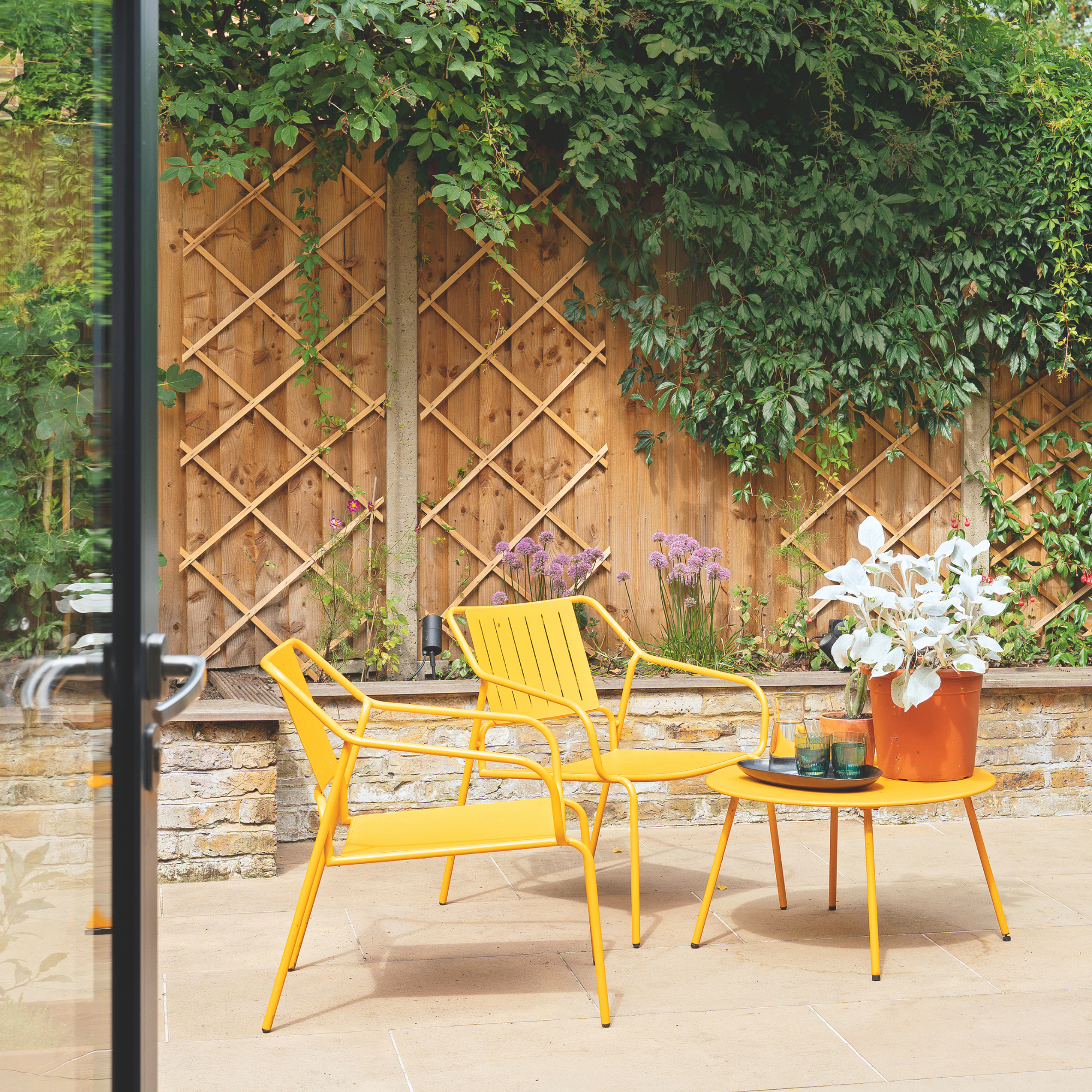 I’m seeing pastel garden furniture at all my favourite brands this spring, but QVC’s sorbet collection impressed me the most
I’m seeing pastel garden furniture at all my favourite brands this spring, but QVC’s sorbet collection impressed me the mostFresh pastel shades are a great way to liven up your outdoor space
By Kezia Reynolds
-
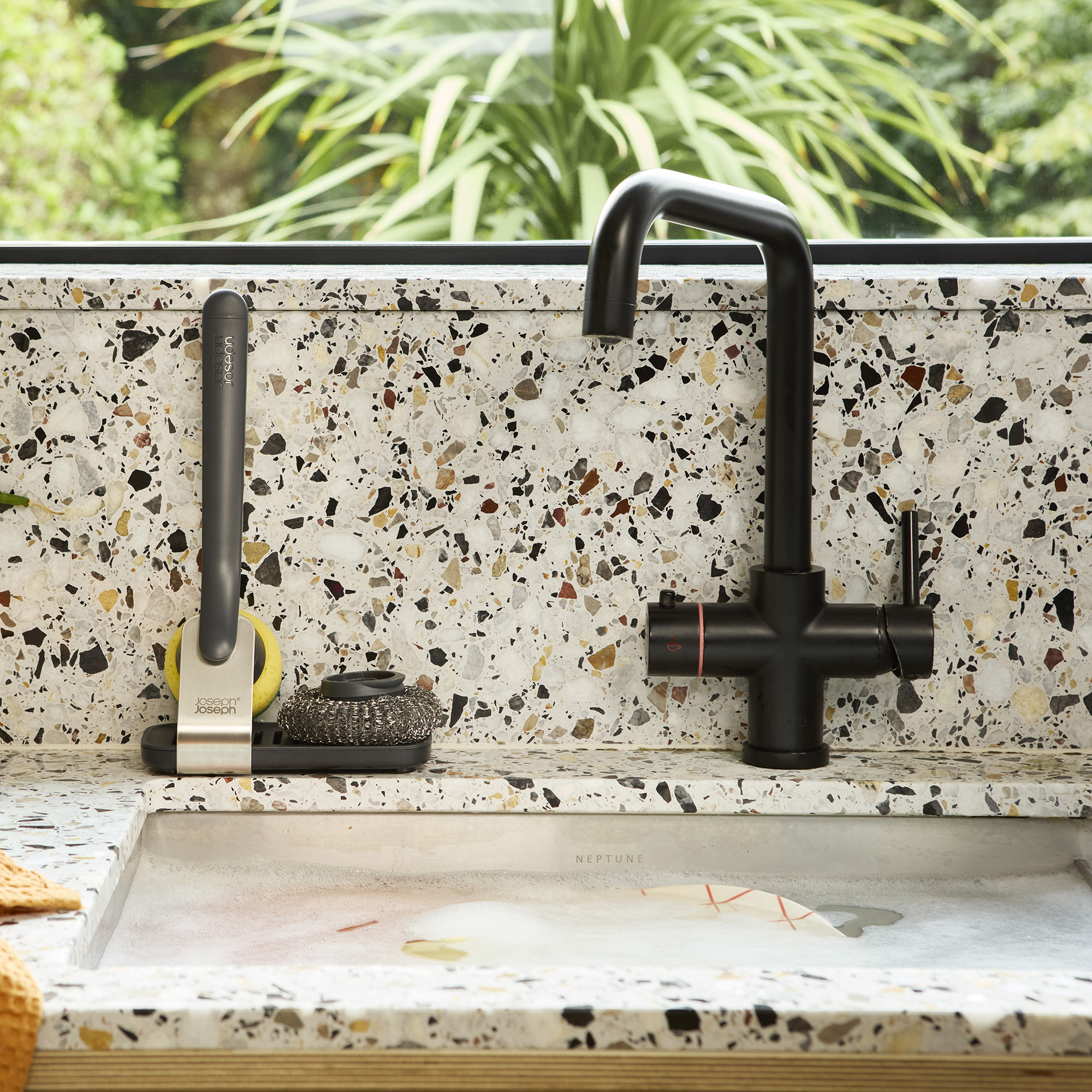 Don't tell my flatmates, but Joseph Joseph's clever new sink range finally made me enjoy washing up
Don't tell my flatmates, but Joseph Joseph's clever new sink range finally made me enjoy washing upI didn't know stylish washing up accessories existed until I saw this collection
By Holly Cockburn